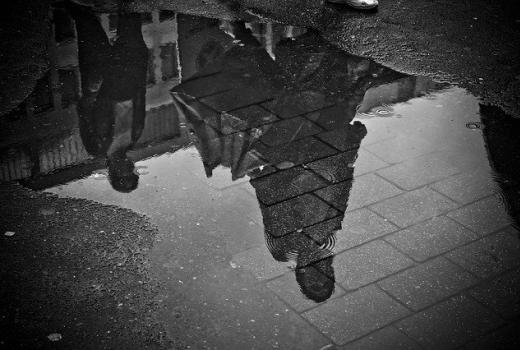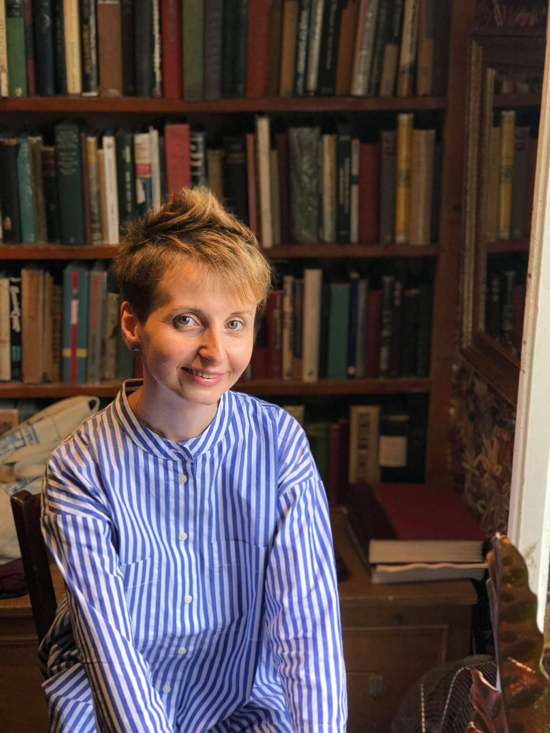And still, “although this interdisciplinary approach shed light on different aspects of intergenerational transfer, as of yet there is no cohesive theory that would explain how individual processes are transferred with collective experiences. There is still no theory that would adequately link individual processes with the collective experience,” explained Zoletić.
Psychiatrist Nermina Kravić says that “survivors go through a series of different psychological reactions, often unable to fully grasp their tragedy, express the grief or rage they feel and carry it deep within themselves, talking about it reluctantly and rarely.” on the other hand, “survivors’ guilt also reduced their capability and motivation to talk about the horrors and torture they lived through; talking about it acts as a reminder and reactivates the uncomfortable feelings, memories, nightmares, which makes the person avoid any reminders or talking about war themes, leading to a ‘conspiracy of silence’.”
Nevertheless, the trauma keeps on living, both in those who have lived it and in their posterity. “The psychological presence of war suffering is always present in the house, verbally and non-verbally, and children often ‘absorb’ the omnipresence of the experience through memory ‘osmosis’. The ‘absorbing’ of the parents’ ambivalent feelings and incomprehensible reactions causes a mix of feelings in children – fear, insecurity, guilt, difficulties in expressing their own feelings – which can lead to certain psychological difficulties in members of the second generation of war trauma survivors,” explains Kravić.
PTSD mediatisation
“You are alive, and I never got to know my father... what do you call that..” – one of the commenters asked.
Another added: “Every other citizen of BiH has PTSD. The thing is that it’s a common state of mind here and we’re the majority, so we don’t know what anything else looks like. We only get truly lost when we go to Western Europe or beyond... “
“We all have PTSD,” was the comment of one more anonymous user on the portal.
Professor Nermina Kravić says that “to develop post-traumatic stress disorder, you need ‘criterium A – exposure to a stressor’, which implies that the person was either personally exposed to or witnessed: death, death threats, actual or imminent serious injury, actual sexual violence or the threat of it. All of us who have lived through the war in Bosnia and Herzegovina in the 1990s have the criterium A – exposure to stress, which is the condition for developing post-traumatic stress disorder.”
Crime denial is simultaneously a “powerful and immature defence mechanism with which the perpetrators try to minimise the scale and horrors of evils they committed, falsely protecting their identity and giving it another meaning,” Kravić explains.
“Furthermore, those who deny crimes use the victims’ response of avoiding trauma reminders, ‘conspiracy of silence’, fear and the response of ‘emotional numbness’ with which the victim avoids being reminded of or reliving the difficult times experienced during the war.”
Clinical psychologist Emina Zoletić believes that “selective media in the service of political propaganda can also affect the transfer of trauma memories of war occurrences and create a partial, one-sided image and attitudes in young people who have not experienced war.”
Nevertheless, “we still don’t know the role of media and media culture or the way they affect the mechanism of transferring war memories.”
The web portals Poskok.info and Klix.ba record the highest number of comments which, apart from denial of crimes, also contain different forms of intolerant speech towards certain groups of people, most commonly those from another ethnic background. These were also the
findings of scientific research published in 2014. The situation with comments on portals such as Poskok and Klix remains similar today.
Aside from comments relativising crimes, there are also those in which people of ‘other’ nationalities are called derogatory names. For example, the article with the title
SILAJDŽIĆ’S PROPHECY: Komšić Has Finally Managed to Completely Put Croatians Off BiH published on the Poskok portal is accompanied by comments containing insults at the expense of other nationalities (“Turkified” or “Turks” for Bosniaks). Similar comments are found on the Klix portal, e.g., comments on the text
25 Years After the War, Mostar Still the Most Devastated City in BiH. One of the comments refers to Bosniaks as “Islamised Serbs,” and to Croats as “Skutors” and “Ustasha”. The situation is similar on the portal of Nezavisne novine, a daily newspaper from Banja Luka. There the users occasionally refer to each other in comments as “Taliban,” “big Serbs,” “Chetniks,” “Balijas,” “Ustasha.”
Hate speech as “normalisation of the extreme” and “continuation of war”
Social anthropologist Hariz Halilović from the Social & Global Studies Centre of the RMIT University in Melbourne clarifies that hate speech on online media has become a sort of “normalisation of the extreme.” He believes that “it is a marriage of two different concepts that mutually support and sustain each other in the virtual space.”
On the one hand, there is the commercial aspect of online platforms dependant on commercials which are paid for by quantity, not quality.
“On the other hand, we have full freedom of expression, which gives users the power to share the most extreme attitudes and spread hate speech with impunity and complete (or almost complete) anonymity, without any fear of consequences. Even though we often hear that people would never utter in public, under their full name, what they write in comments on digital media, the hatred in these comments in the virtual space is still a reflection of real-life hatred,” Halilović concludes.
Comments on the territorial structure of Bosnia and Herzegovina are also common on BiH portals. Some
texts developed the discussion on who would have “won” the war had the circumstances been this or that, with some advocating for the division of Bosnia and Herzegovina, and others calling for “another Operation Storm.”
“Republika Srpska is celebrating 28 years of existence. It will also be celebrating its 50th and 100th anniversary. It’s time for Sarajevan Turks to realise that Republika Srpska is a permanent category, that they will never dismantle it and that it’s time to find a peaceful, democratic, compromise solution for neighbourly coexistence with Republika Srpska, side by side, each on their own,” one user stated in a comment on the web portal of Banja Luka’s daily newspaper Nezavisne novine on the subject of unconstitutional celebration of the Day of Republika Srpska. The comment accompanies the
article on the statement by Nedeljko Čubrilović that “Inzko is enforcing Bosniak politics.”
“We will end it one way or another, sooner or later .... this is BOSNIA… always has been and always will be... nothing more .... not Serbian, Muslim or Croatian... only BOSNIA”, one user commented on the
Radiosarajevo.ba web portal.
Occasionally, comments call for reconciliation, the possibility of coexistence, resolving and overcoming war trauma. One article on war victims helping young people in BiH to learn from their experiences that was published by the Klix portal had many comments suggesting that “the past shouldn’t be talked about.”
One user wrote
“Enough already. Reallyyy.. It’s been almost thirty years, and we still talk about the war, death…How about trying to live?” Responding to the Nezavisne novine article
Dayton Brought Peace, Not Reconciliation, another user concluded that “One side always thinks it’s the victim, and the others are aggressors, when actually all were victims of wrong politics of predecessors.”
“The very word ‘reconciliation’ has long lost any weight and has different meanings to different people,” explained Halilović. “I believe that a superficial reconciliation – along the lines of ‘forget the past, accept the results of war and all that came after the war’ – can be counterproductive and unsustainable.”
However, generally speaking, there are much fewer comments calling for reconciliation than those denying crimes, calling for new crimes or offending and threatening members of other nationalities. Such comments bring many negative consequences for the social atmosphere.
Halilović clarifies that “all these forms of spreading real hatred in the virtual space or air are ‘a continuation of war by other means’ or celebration of the crimes that served as the foundation for the exclusion or nationalist politics we have in Bosnia and Herzegovina and the region today.”
“In addition to such practices offending the victims, banalising and trivialising horrendous crimes committed a quarter of a century ago in this country, allowing the spread of hatred freely and with impunity in the virtual space is a ‘Goebbelsian’ grooming of new generations to commit new bloodshed,” concludes Halilović who focuses on politically motivated violence, social memory, forced migrations and other topics in his research.
Psychiatrist Kravić says that “the refusal of perpetrators to admit to their crimes makes it impossible for victims to forgive them and prevents any constructive dialogue in the society and country.”
“This is why young people leave this unfavourable environment to search for a brighter future, wanting to apply their positive potential to something creative, not destruction and exhausting hatred and negativity in anticipation of new conflict that is always looming over them. Therefore, the acknowledgement of crimes, forgiveness by the victims and dialogue accompanied by mutual listening and understanding are the precondition for curing war trauma and recovery of society,” he concludes.






